A
month ago I wrote a news item about Bertrand Tavernier’s new movie, in which I
proclaimed his Coup de Torchon to be the best (and my favorite) Jim Thompson
film adaptation. But everyone has to have the last word, and a few brought up
the notion that I might be overlooking something. What about James Foley’s
amazing After Dark, My Sweet, released to almost no acclaim or even
notice (box office or otherwise) in 1990? Indeed, After Dark is an amazing
film, and at least second in the running for Best Thompson.
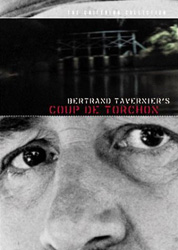 So
So
this is a column for the people who love Big Jim Thompson’s daylight, no holds
barred noir, especially the ones that have seen After Dark but not Coup de
Torchon, or vice versa. It’s also for everyone who’s seen and liked The
Grifters, because there’s so much better out there.
Released
a couple months later than After Dark, My Sweet, The Grifters did significantly
better ($13.4M to ADMS’s $2.7) due obviously to a high profile cast and
studio-instigated Oscar buzz. It also avoided the dreaded ‘erotic thriller’
tag. After Dark did not, despite featuring only a single love scene that is
tasteful and as smartly constructed as the rest of the film. While The Grifters
got a big push, After Dark opened on 30 screens and never got wider than around
150.
Speaking
of The Grifters, I’ll take a second to rate it. In short, I don’t rate it at
all. Every time I’ve sat down to it (and I’ve tried a good half dozen times)
I’ve found it dull and not at all representative of the coiled, terrifying
energy that Thompson made so palatable and immediate. You read The Grifters and
heat and fear radiate off the page. I watch the movie and take a nap. Would it
have been better as a Scorsese film? (He produced.) I’ll speculate ‘no’, though
I might have liked to see Marty make a smaller movie with Casino‘s vibe and this
would have been the one.
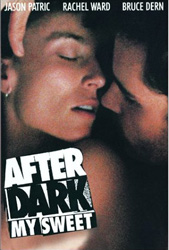 (I’ll
(I’ll
give you one thing, though. Pat Hingle is more fun than a sock full of oranges
as Bobo, the bookie with a violent streak who employs Angelica Huston’s Lily.)
There’s
a single, shining reason After Dark is a significantly better film than The
Grifters: it does not try, it just gets the job done. Yeah, Yoda would love
this flick. It doesn’t waste time with homage or call outs to classic noir. You
won’t watch a frame of Foley’s film and think, ‘oh, how clever; that’s from
that Mitchum movie.’ Foley jumps on the story’s scent and runs it down like a
poor little fox. He’s a bulldog, even more so than when he made Glengarry
Glen Ross.
So
there are no embellishments. Jason Patric slumps onscreen, immediately
conveying his status as an ex-boxer, and the small but tightly wound plot
springs into action. The source novel is right from the middle of Thompson’s
catalogue, and I don’t think he ever wrote another book that was as stripped
down and finely honed. (That’s not to say he didn’t write better — I think he
did — but for pure pulp efficiency, I don’t think he was ever better than
this.)
Broken
pugilist Kevin Collins (Patric) wanders highways when he’s not sedated in a
mental hospital. (He likes to break out.) One of his rambling journeys leads to
an encounter with Fay (Rachel Ward), a leggy, acidic widow. Fay hires ‘Collie’
to do some work on her place, which enables a meeting with Uncle Bud (Bruce
Dern), who’s got a long-simmering kidnapping plot ready to go. All he needs is
a guy just like Collie.
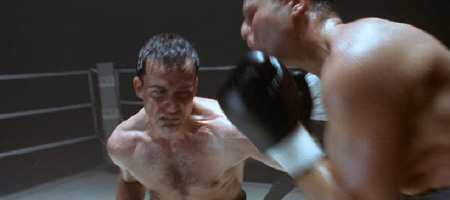
Like
a lot of Thompson’s stories, After Dark unwinds mostly in daylight, which makes
the inhuman actions on display even more gutsy and wrenching. It’s ballsy to
stage a kidnapping in broad daylight, as these crooks do, but it’s just
unforgiving to have the final confrontation play out under the high sun.
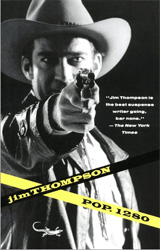 Then
Then
there’s Coup de Torchon. It’s based on Pop.
1280, which features a small-town sheriff who we realize is a total
sociopath. Thompson liked to re-use ideas from book to book and Pop. 1280 is
very similar in plot to The Killer Inside
Me. (Killer was also filmed, with Stacy Keach as the lead.) But like Philip
K Dick, who infused old plots with metaphysical ideas late in his career, Pop.
1280 isn’t merely recycling content. It takes the idea of Killer Inside Me and
adds more ambiguity and unreliability to the mix, making the story more
powerful and uncomfortable.
So
in Tavernier’s film Nick Corey, sheriff of Potts County, becomes Lucien Cordier,
listless lawman in Bourkassa. Lucien avoids doing his job at every turn — when
a woman is being beaten in the street by her husband as Lucien gets a haircut,
he claims not to hear her; by the time he gets up, the row is over. But then he
starts taking a very devious, violent path of action against his aggressors.
(The
woman also turns out to be Lucien’s mistress, a schoolteacher named Rose played
by a young, indescribably beautiful Isabelle Huppert.)
As
Lucien, Philippe Noiret is masterfully noncommittal. The entire story is
predicated upon the idea that his wife and her creepy manchild ‘brother’/lover
would never cop to his true nature; in fact the entire town has to be seduced
by his laziness. Rumpled, ungainly and sluggish, Noiret shrugs Lucien into
life, and his perfect rendition of a lazy sod makes his violent, intelligent
outbursts more surprising.
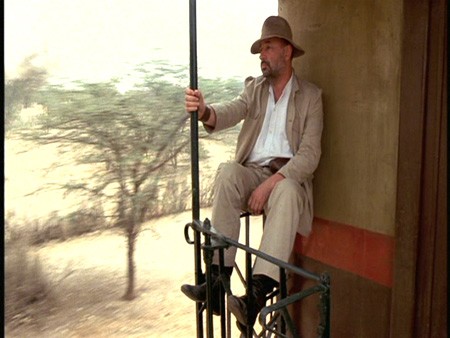
Transplanting
the action from America to French colonial West Africa does a lot more than add
scenery. Just as the landscape is even more harsh and dry, the moral fabric
feels more improvised. That gives Tavernier more room to play out the
ambiguities of the story, and he does so beautifully. Why are his superiors,
who must maintain some order in the colonies, so ready to keep Lucien around?
Does the colonial government have the same relationship with the country that
Lucien does with Bourkassa?
Not
that After Dark is perfectly straightforward. It’s laced with questions. Is
Uncle Bud really the connected former lawman he pretends to be? Is Fay going to
ride straight with Collie, or is she going to fuck him over? He’d be happy just
to know if she’s actually going to fuck him, for starters. And is Collie really
as damaged as he pretends to be, or did he just land himself in the looney bin
to avoid life in prison for murder?
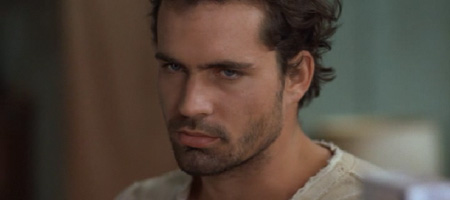
The
difference between the ambiguities of each movie is the key to why I love After
Dark as a thriller but admire Coup de Torchon even more. All the questions
about Collie and his cohorts are essentially plot and character oriented; they
reel you in and keep you bound up in the story, but don’t offer anything beyond
that. Coup de Torchon gives you a lot more to chew on, at the expense of being
able to create the feeling that the film is an animal ready to pull your face
off.
Working
hard in After Dark’s favor is Jason Patric, and I don’t know if he’s ever been
better than here. I’ve seen a lot of guys play ex-boxers, and none of them have
what Patric brings to the screen; he stumbles like a half-evolved ape,
shoulders curved slightly forward, arms swinging, broken hands curled like
they’re encased in phantom gloves. Collie’s dull gaze is so well guarded you
never know if he’s been punched stupid or if there’s a deep deception going on.
Also
powerful are Rachel Ward and especially Bruce Dern, who is shady and pathetic
in the same way every small-time hood I’ve encountered has ever been. George
Dickerson (from The Star Chamber and Blue Velvet) also adds a nice touch as a
doctor whose kind acceptance of Collie is reason enough to cause deep distrust.
James Foley does well by vaguely implying a homosexual motivation on the Doc’s
part without letting that minor point take over any scene.
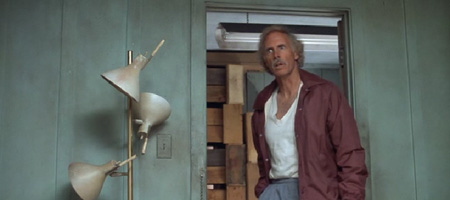
The
deception of After Dark is all between the characters, but one of Pop 1280’s
key components was the unreliability of Nick Corey, and Tavernier brings it
forward into his film. Lucien’s first victims are reprehensible characters,
like Bourkassa’s two ruling pimps. But his actions become more capricious and
less justifiable; think of it like Taxi Driver in colonial Africa.
By
the end of the film, when Lucien idly contemplates shooting a lone black child,
you’ve got to wonder how much we’ve been lied to. What murders haven’t we seen?
Are his actions all for the greater good (The Greater Good!) or did we just see
the murders that he could justify? There’s a comment about racism in there,
too, as some of Lucien’s actions could be seen as being in defense of the local
population and custom, but that blasé willingness to shoot a black child (he
stops seemingly only because others come along) implies that any stand against
racism is only a convenience to justify his murderous actions. From that it’s
pretty easy to extrapolate a comment about the racism of colonial governments.
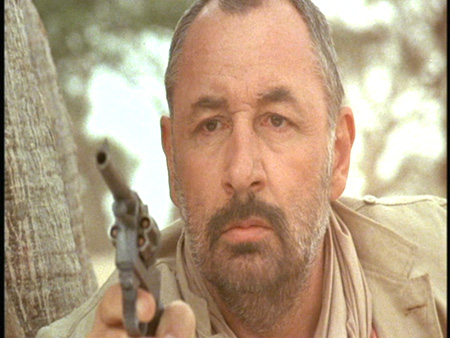
Since
this was pitched as a sort of noir versus noir scenario, I guess I’m meant to
offer some scorecard at the end, or to declare a winner. So it’s like this.
After Dark My Sweet is the blind buy. It’s a perfect little gut punch of a
movie in which everything isn’t necessarily black and white, but at the end
everyone is at least alive or (mostly) dead. If there’s someone who likes
thrillers/noir/mystery or even just movies and claims not to like After Dark,
distrust them immediately.
But I’ll stick with
Coup de Torchon as the best adaptation, because it does something After Dark
does not — it takes Thompson further. It proves his relevance outside of the
limited circle of American Experience. It asks questions and refuses to answer
them, which gives it a lifespan that reaches beyond any individual viewing.
This Week’s Playlist
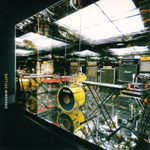 Battles
Battles
Mirrored
I’d feel more guilty about downloading this album when it leaked back in March if I hadn’t been banging on the doors of my local record store first thing the morning of it’s actual release last week. It’s the perfect blend of man and machine, analog and digital — madly talented guys (Helmet’s drummer, Don Caballero’s guitarist, etc) making music that’s two decades ahead of you. And you can dance to it.
*Website*
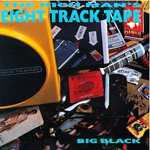 Big Black
Big Black
The Rich Man’s 8-Track Tape
It’s funny now to read Steve Albini’s pissy notes about the irrelevance of CDs on the liner notes to this comp, but Jordan Minnesota and Kerosene still get me, and Heartbeat is probably the best Wire cover ever. (Though that girl from Elastica made ripping off Wire more fuckable.) When summer arrives I just want to drive around with the windows down listening to really loud, obnoxious stuff and this record is perfect.
*Website*
 Oxbow
Oxbow
The Narcotic Story
Years ago I saw this San Francisco band in a tiny club in London and spent the set being blown away by jagged, heavy shit while I feared for my life. The fear was Eugene’s fault — he’s the massively built singer who owns the stage with his ears grossly plugged with duct tape as he slowly strips down to his underwear during the set. That his vocals are the blues howl of a man gone insane didn’t make things easier. You take your goth kids with their Swans and Psychic TVs (or, hahaha, their Nine Inch Nails) and Oxbow will beat the teeth out of every single one. The Narcotic Story just came out, and it kills; every song is soft and hard. Yeah, just like a cock.
*Website*